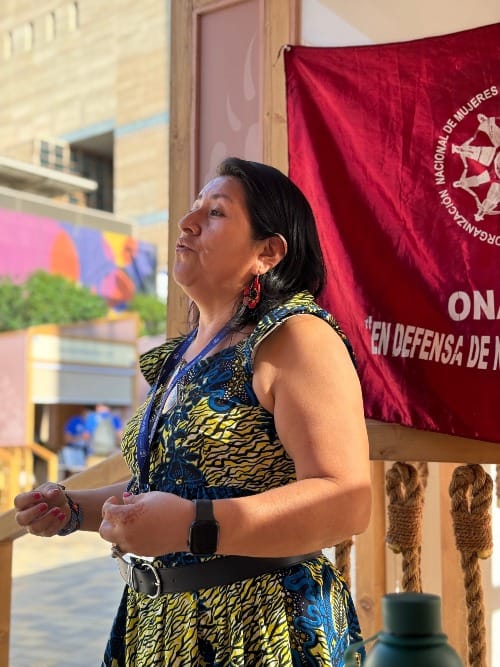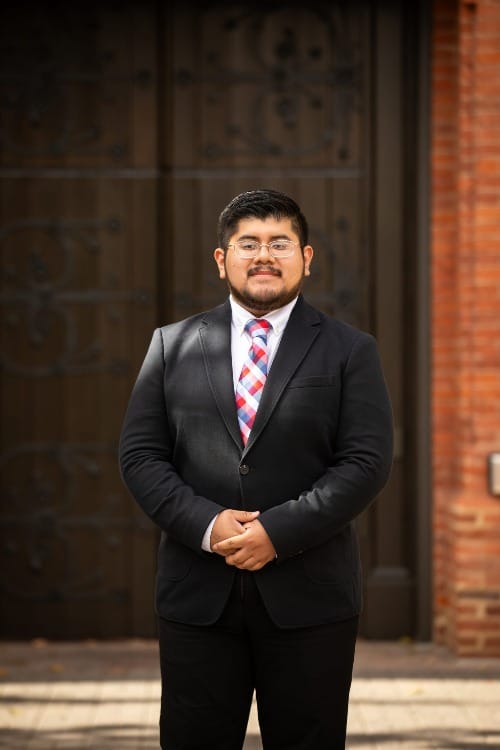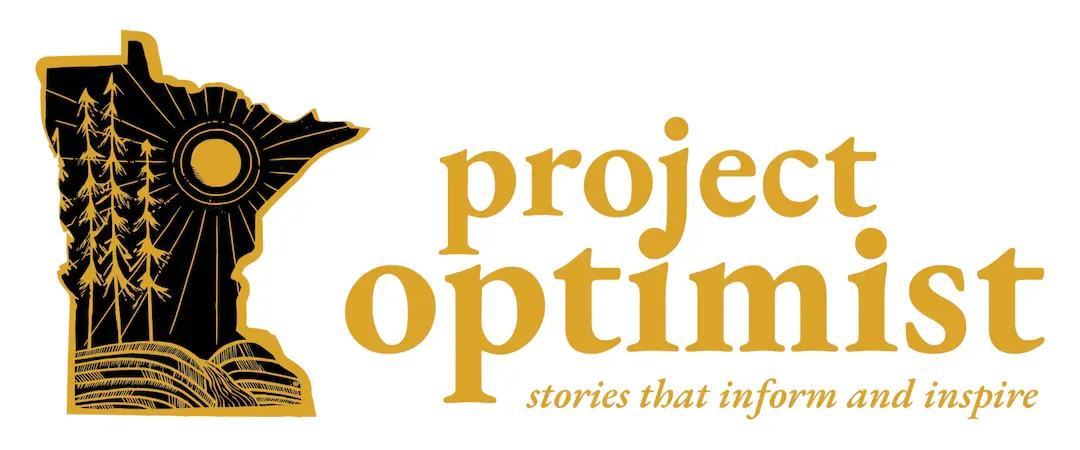'We are rebels': Indigenous women take lead on climate action at COP28
Fredi Ponce Parra, a student at the College of St. Benedict and St. John's University, writes about how Indigenous women made their voices heard at COP28 in Dubai.

This piece is part of Project Optimist's student and community reporting program in central Minnesota. A group of students conducted field reporting at the COP28 conference in Dubai and wrote stories that highlight their research. Fredi Ponce Parra is a senior at the College of St. Benedict and St. John’s University with a major in political science and a minor in history.
Indigenous women are among those who are currently facing the ramifications of climate change, along with other challenges like sexism and access to education.
At the United Nations Framework Convention on Climate Change (UNFCCC) 28th Conference of the Parties (COP28) in Dubai, Indigenous women made their voices heard through speeches, panels, and demonstrations. Although they were not around the negotiation tables, they made strides in their visibility during the conference, held from Nov. 30 to Dec. 13, 2023.
Indigenous people had a dedicated pavilion at COP28. There were also more pavilions in the conference where Indigenous people participated and were given spaces to speak.
Indigenous people have unique connections to their land. To them it is not a parcel or real estate. It is their home and their relatives. Indigenous spirituality is fundamental to this connection to land. Indigenous people see animals, plants, water, and the earth as their relatives. Mother Earth provides us with everything we need to survive, and we must take care of her.
Ketty Marcelo López is the president of Organización Nacional de Mujeres Indígenas Andinas y Amazónicas del Perú (ONAMIAP). This Indigenous woman-led organization focuses on advocacy for Indigenous women’s rights in Peru.

At COP28, she explained her spirituality by her relationship to rivers: “I was born by the Perené River, and I grew up by the river. The river was my friend and continues to be my friend. After school, when I was about 6 years old, I would leave my notebooks and go play. In the city, kids go to the playgrounds, they learn to swim in pools. I learned to swim in the river, that was my playground.”
She continued, “When I moved to the city, I was missing something. In Lima, it is all cement. I would look for a river, the Rímac River, which is nasty. I would look at the river and I would feel peace. My daughter too looks for rivers because I do, unfortunately she didn’t grow up with the river I did. For 30 years, the Perené River has been polluted by mines with lead. I don’t enjoy that river anymore, my children didn’t get to enjoy that river, and it is like seeing a brother agonize, and just watching him die.”
Mayra Macedo, president of Organización de Comunidades Indígenas de Mujeres Shiwilu (OCIDMUSHI), had a similar sentiment, “When there is deforestation, we don’t just see trees die. In those forests are our sacred sites. We are fed and healed by Mother Nature. That’s why we are thankful for her and feel the need to keep defending her." As species leave and die due to climate change, Indigenous people face the consequences.
The same is true for Indigenous people in Minnesota and the United States. Turtle Island, also known as North America, is the ancestral homeland of the first people. In Minnesota, or Mni Sóta Makhóčhe, the Dakhóta and Anishinaabe people were stewards and caretakers of the earth long before any European settlers came to this land.

The Dakhóta and Anishinaabe people have deep connections to this land. This is where their ancestors lived and played, where their dead are buried, where they find healing, and where they were forcefully removed from. They are still here. This is not unique to the Dakhóta and Anishinaabe people.
Many of those sitting around the negotiation tables at COP28 are not people on the front lines of the climate crisis. Women, children, the elderly, those with disabilities, and Indigenous people worldwide are among those who are facing the dangers of the crisis while contributing little to carbon emissions, according to the United Nations and the U.S. Environmental Protection Agency.
Help us keep the momentum going.
If you haven't already, please consider a donation to our fundraising campaign.
We're asking our community to support us as we grow into a new phase. Your donation will go directly toward funding staff, freelancers and artists who help make Project Optimist great.
And your gift will have double the impact thanks to $2,000 in matching funds.
Support solution-focused journalism in greater Minnesota with a donation today!
Indigenous people are experiencing the ramifications of climate change. Wilma Mendoza Miro is the president of Confederación Nacional de Mujeres Indígenas de Bolivia (CNAMIB). She explains that “Our population has suffered devastating fires, we’ve lost sources of water, (sources of water) aren’t satisfactory anymore, the seasons are not the same. We can clearly see there is change. There is no guarantee of our food sovereignty.”
Marcelo López, Macedo and Mendoza Miro said climate solutions cannot come without Indigenous people, especially Indigenous women, at the table.
“Being an indigenous woman means resistance,” said Macedo. “We are rebels, rebels to this system that we want to change.”
